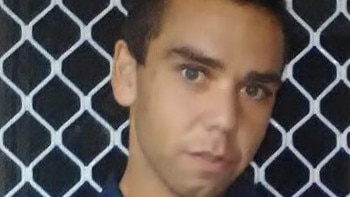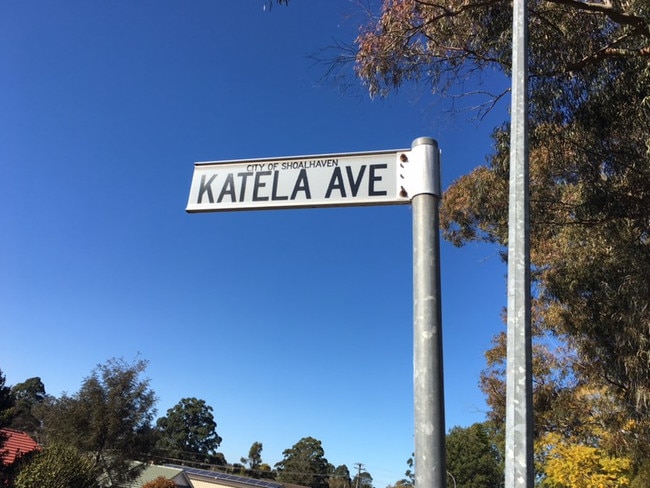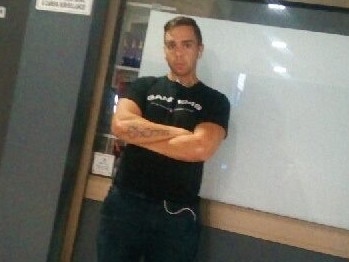Mum never go to see son’s body after he died during police operation, inquest hears
A coronial inquest into the circumstances surrounding Jordan Cruickshank’s death, who died during a police operation at Bomaderry in 2018, was held at Milton Local Court on Tuesday and Wednesday.

Illawarra Star
Don't miss out on the headlines from Illawarra Star. Followed categories will be added to My News.
- Al Jazeera journalist’s ex-wife guilty of fraud
- Not guilty plea for woman ‘nine times over legal limit’
A coronial inquest investigating the death of a young Aboriginal man who died during a police operation, has revealed the heartache still felt by his family more than a year after the tragic event.
Jordan Cruickshank died on May 6, 2018 at Shoalhaven Hospital, after police found him unresponsive and without a pulse in a Bomaderry backyard following a short foot pursuit.
A mandatory inquest into the circumstances surrounding the 24-year-old’s death was held at Milton Local Court on September 3 and 4, in order for Deputy State Coroner Magistrate Liz Ryan, to get a better understanding of the moments leading up to and proceeding Mr Cruickshank’s death.
The day before Mr Cruickshank’s sudden and unexpected death, the inquest heard police had been issued a warrant for the 24-year-old’s arrest in relation to traffic offences.
Just before midnight that evening, police attended a Samuel Street home in Bomaderry, after receiving information Mr Cruickshank was at the property.
The inquest heard police knocked on the door of the home with the intention of arresting the 24-year-old, but were instead greeted by his brothers Edward and Cody.
The officers suspected Jordan was in the home, and called for back-up, fearing he may try to flee the property on foot.
A second pair of officers knocked on the door a neighbouring home, where they heard a loud “thud” as Mr Cruickshank jumped out of a back bedroom window and ran off.
A foot pursuit began, as a police officer tried to arrest the 24-year-old.
The inquest heard that moments later, a resident on Katela Ave heard “grunting and groaning” noises, followed by a loud bang, “similar to the sound of someone tripping or falling over’.

The resident looked in her yard where she saw Mr Cruickshank “sitting partially upright” and unresponsive to her calls.
Police officers quickly found Mr Cruickshank, and began performing CPR while they waited for an ambulance to arrive. On Wednesday, the inquest heard officers “couldn’t find a pulse” and that his body temperature had dropped dramatically.
Once they arrived, paramedics set up a defibrillator, and transported Mr Cruickshank to Shoalhaven District Memorial Hospital.
But at, at 1.02am on May 6, Mr Cruickshank was sadly pronounced dead, with the cause being methamphetamine toxicity and an underlying heart condition.
Mr Cruickshank’s mother Debbie Walker was present at the inquest on Wednesday, remembering her son as a “good boy”, who was devoted to his family and loved to play practical jokes.
Ms Walker’s treatment by police following her son’s death was central to the inquest, as was the critical investigation launched by senior officers immediately after the death.
The inquest heard Ms Walker was not given the opportunity by police to see her son’s body following his passing, which caused, and continues to cause her a great deal of heartache.

On Wednesday, Detective Inspector Brad Ainsworth, who was head of the critical investigation, told the inquest he did not offer Ms Walker the opportunity to see her son’s body, after breaking the awful news to her.
“She became upset, ran into the bedroom and shut the door [when I told her],” he said.
“I did not offer [the family the chance to view the body] and it was not requested.”
The inquest heard that offering the next of kin the opportunity to view or identify a person’s body was part of strict police protocol, which had not been followed by the officers who broke the news to Ms Walker.
In a statement read by a representative of the family on Wednesday, the inquest heard how the missed guideline had affected Ms Walker in the year-and-a-half since her son’s death.
“Debbie is finding it really hard to accept that the police did not give her the right to say her last goodbyes to her son,” the statement read.
Mr Ainsworth agreed that in hindsight he should have brought it up with Ms Walker, but said she was “too upset” at the time.
Justine Hopper, counsel assisting the coroner, said while there was no criticism of police during the lead up to Mr Cruickshank’s death, the events that followed were “troubling”.
Ms Hopper told the inquest there needed to be “better communication” between Ms Walker and the police, and that the guidelines “did not appear” to have been followed.
“It is not uncommon for a family to be upset and distressed when a loved one dies,” she said.
“That does not justify the police not following guidelines, policies and protocols”.
Ms Hopper said there was also a “lack of cultural awareness” shown by police when breaking the news to an Aboriginal mother that her son had died.
Counsel for Ms Walker and her family Sarah Crellin said Mr Cruickshank’s death was “another Aboriginal life lost to the ice epidemic” and that better attempts should have been made to allow Ms Walker to see her son one last time.
Deputy State Coroner Ryan adjourned the inquest on Wednesday afternoon, to allow her to formulate recommendations regarding the process of police breaking the news of a death to family members.
The inquest will continue in October.
IN OTHER NEWS
